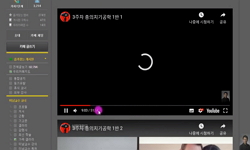Introduction: Residents and nurses are the main group of clinicians who activate the rapid response team (RRT), placing them in an excellent position to provide valuable insights regarding the effectiveness of this system. Purpose of our descriptive s...
http://chineseinput.net/에서 pinyin(병음)방식으로 중국어를 변환할 수 있습니다.
변환된 중국어를 복사하여 사용하시면 됩니다.
- 中文 을 입력하시려면 zhongwen을 입력하시고 space를누르시면됩니다.
- 北京 을 입력하시려면 beijing을 입력하시고 space를 누르시면 됩니다.
F-140 A survey of nurses and residents about the rapid response team in a teaching hospital = F-140 A survey of nurses and residents about the rapid response team in a teaching hospital
한글로보기https://www.riss.kr/link?id=A104299990
- 저자
- 발행기관
- 학술지명
- 권호사항
-
발행연도
2017
-
작성언어
Korean
-
주제어
조기대응팀 ; 만족도 ; 설문조사 ; rapid response team ; satisfaction ; questionnaire
-
자료형태
학술저널
-
수록면
142-142(1쪽)
- 제공처
-
0
상세조회 -
0
다운로드
부가정보
다국어 초록 (Multilingual Abstract)
Introduction: Residents and nurses are the main group of clinicians who activate the rapid response team (RRT), placing them in an excellent position to provide valuable insights regarding the effectiveness of this system. Purpose of our descriptive study is to assess whether residents and nurses value the RRT service and to determine barriers to calling the RRT exist in a teaching hospital.
Methods: We conducted a modified personal interview, using a 17-item Likert agreement scale questionnaire from January to May 2017.
Results: A total of 322 ward nurses and 30 residents returned their completed surveys. The majority of nurses and residents were satisfied with the RRT, with suggestions for simplifying and educating the RRT activation criteria. Most responders suggested that they would make a call to RRT team even if the patient’s vital signs were normal or the patients did not fulfill RRT criteria. However, both nurses and residents feared criticism of activating RRT from colleagues that the patient was not sufficiently unwell to transfer to ICU. Despite hospital RRT protocol, 95% of nurses would call the covering doctor and 67% of residents would discuss with other residents about patients’ management, before activating the RRT for a sick ward patient
Conclusion: Nurses and residents value the RRT service and appreciate its potential benefits. The major barrier to calling the RRT appears to be awareness of honor in Asian culture, and allegiance to the traditional approach of initially calling covering doctors, rather than fear of criticism for calling to the RRT team.
동일학술지(권/호) 다른 논문
-
- 대한결핵 및 호흡기학회
- 이경종
- 2017
-
- 대한결핵 및 호흡기학회
- 이종식
- 2017
-
- 대한결핵 및 호흡기학회
- 이광하
- 2017
-
P-11 Diagnostic accuracy of qSOFA, SIRS, and early warning scores for diagnosis of septic shock
- 대한결핵 및 호흡기학회
- 이광하
- 2017




 KISS
KISS






